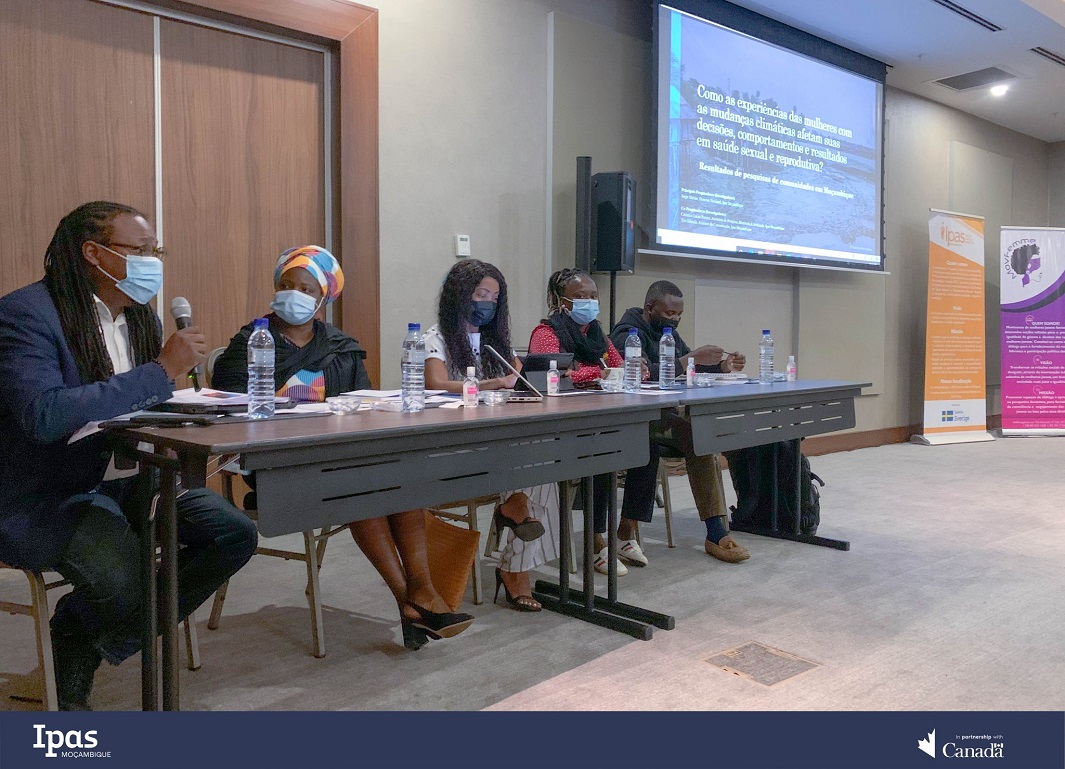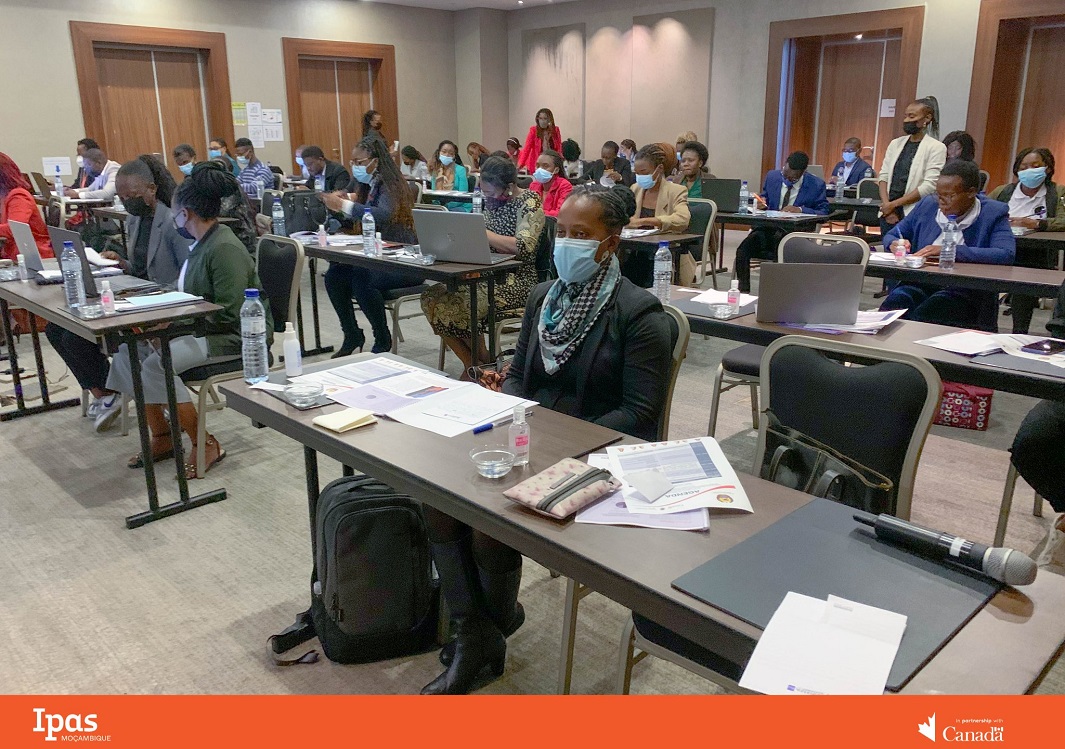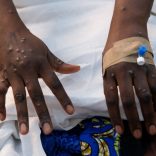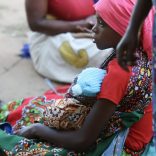77per cent of Mozambican children live in poverty
Results of the study on ‘The Impact of Climate Change on Sexual and Reproductive Health” in Zambézia province, Mozambique

Photo: Ipas Moçambique
Ipas Mozambique, in partnership with the Ministry of Health and the Movement of Young Feminists (MOVFEMME), held on May 31, 2022, at 8:00 AM, at the Hotel Radisson Blu, in Maputo City, a Presentation Session of the Study results on: “The Impact of Climate Change on Sexual and Reproductive Health” in the districts of Mocubela, Maganja da Costa and Derre, in the province of Zambézia, in Mozambique.
The presentation session was attended by panellists Ndzira de Deus, Executive Director of Fórum Mulher, Dr. Regina Charumar, Environmentalist and University Lecturer, Casimira Pereira, Research, Monitoring and Evaluation Advisor Ipas Mozambique, Dr. Vania Benzane, National Maternal Health Officer, Ministry of Health, Clemente Ntauazi, Program Manager for Climate Change and Renewable Energy, Livaningo and Jorge Matine, Country Director Ipas Mozambique.
“We need to target mitigation program that look at the level of vulnerability risk that the population have, and in this study, it was shown that largely in the resettlement centers more women stay than men. Firstly, because men stay very little time in the centers, they don´t accept the idea that they can stay there for a long time and they leave in search of employment. Women on the other hand stay primarily because they have children, and the centers in turn provide education for the children during the period of the climatic events. Most of the centers do not have health services that meet the needs of the women” said Jorge Matine, Country Director, Ipas Moçambique.
The study was presented as part of the commemorations of the International Day of Action for Women’s Health, under the slogan “BREAK THE PRECONCEPT! For a better world with gender equality, free from prejudice and discrimination, worthy of Women’s health, today and forever”. The study was conducted in collaboration with the Provincial Health Directorate and the Provincial Health Services of Zambézia, as well as with the National Institute for Disaster Risk Management and Reduction (INGD).
“In terms of the results that were presented, it gave us a broad view that really our interventions are not enough that are existential (providing tests, first aid drugs) but a more complete view is needed where we can offer (Ex: Psychosocial Support Services, Family Planning, access to Safe Abortion services). MISAU has a multidisciplinary team that should look at these resettlement centers in a more complex and complete way. The result of this research will help MISAU to implement solutions in the affected places and expand nationally” said Dr. Vania Benzane, National Maternal Health Officer, Ministry of Health.
The study made it possible to bring more evidence to better allow the design of support programs, becoming the main focus and working together with state and non-state actors, putting the results obtained into practice.
“Key informants and community members often disagree about the quality and scope of humanitarian response efforts. There is a need for synergies to ensure that there is greater support for these communities in climate change situations”, said Casimira Pereira, Research, Monitoring and Evaluation Advisor Ipas Mozambique.
“It is necessary to open the scope of the study itself to reach all of Mozambique and Africa. Our condition of vulnerability as women makes the Mozambican or African woman prone and vulnerable. We must return to the issue of education, access, sustainability, and financial independence of women. It is important to take the study done to the communities so that they can really understand what the problem is and experience everything that was collected to solve it at a local level, involving community leaders”, said Dr. Regina Charumar, Environmentalist and University Lecturer.
“From the study it became extremely clear that climate change is an irrefutable reality in Mozambique and that in fact it affects women more than men. Climate change destroys the productive fabric (e.g., agriculture) generating hunger among other problems, putting them in a situation of social, economic and environmental vulnerability. We need to build resilience through our action”, added Clemente Ntauazi, Program Manager for Climate Change and Renewable Energy, Livaningo.
“The study is a call to action. The way the information is placed is really an invitation for action, advocacy, for everyone who can be spokesperson for the information that is here. The next climate shocks will come and we must be ready to prevent them”, said Ndzira de Deus, Executive Director of Fórum Mulher.
“The only way to build resilience on climate change is to mobilize more girls to postpone their first pregnancy and stay in school. It’s to make sure that resettlement centers are not a field where women don’t go to school anymore”, added Jorge Matine, Country Director, Ipas Moçambique.














Leave a Reply
Be the First to Comment!
You must be logged in to post a comment.
You must be logged in to post a comment.